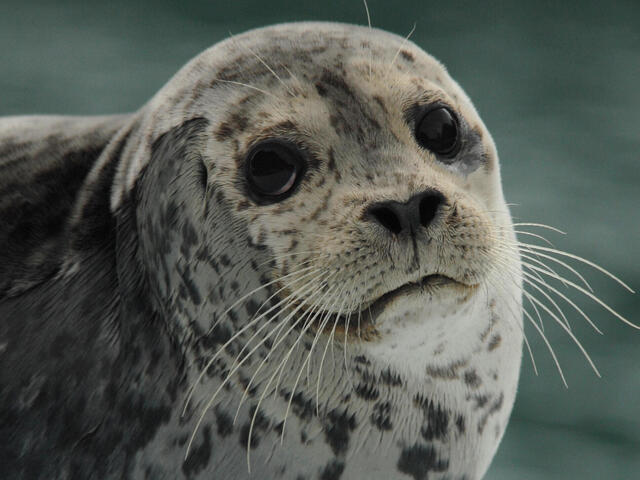Guinea Pigs: Common Pets or Exotic Animals?
Guinea pigs: common pets or exotic animals?
When consider small animal companions, many people wonder about the classification of guinea pigs. Are these small, squeaking rodents consider exotic pets, or do they fall into the category of common household companions? This question touch on definitions of exotic animals, pet regulations, and the widespread availability of these furry friends.
What make a pet’ exotic’?
Before determine whether guinea pigs qualify as exotic pets, it’s important to understand what the term’ exotic pet’ really mean. The definition can vary depend on context, but broadly:
- Exotic pets are animals that are unusual or uncommon in domestic settings
- They oftentimes originate from wild populations or foreign countries
- Many require specialized care beyond what typical household pets need
- They oftentimes face different legal regulations than common pets
- Veterinary care may require specialists preferably than general practitioners
With these criteria in mind, we can advantageously evaluate where guinea pigs fall on the spectrum between common and exotic.

Source: exoticpetsmania.com
Guinea pig origins and domestication
Guinea pigs (cCavia porcellus)originate from the anAndesegion of soSouth AmericaWhile this might initially suggest an exotic classification, these animals have a long history of domestication:

Source: diyseattle.com
- Domesticate by indigenous peoples in the Andes region around 5000 BCE
- Kept for food, religious ceremonies, and as pets
- Introduce to Europe by Spanish explorers in the 16th century
- Breed extensively as pets and laboratory animals since so
This extensive domestication history span thousands of years, make guinea pigs one of to yearn domesticate rodent species. Unlike genuinely exotic animals that maintain close ties to their wild counterparts, domestic guinea pigs are clearly different from their wild relatives and have been selectively breed for pet friendly characteristics.
Availability and popularity of guinea pigs
One key factor in determine whether an animal is considered exotic is its availability and popularity as a pet. By this measure, guinea pigs understandably fall into thnon-exoticic category:
- Wide available in pet stores across the United States and globally
- Systematically rank among the nearly popular small pets
- Estimate 1.5 million guinea pigs keep as pets in the US exclusively
- Extensive commercial industry for guinea pig food, housing, and accessories
- Numerous breed varieties recognize by pet associations
This widespread availability and establish pet infrastructure place guinea pigs securely in the category of mainstream pets instead than exotic animals. Unlike rightfully exotic pets that may require specialized breeders or importers, guinea pigs are promptly accessible to the average pet owner.
Legal classification of guinea pigs
From a legal perspective, guinea pigs are broadly not classify as exotic pets in most jurisdictions:
- No federal restrictions on guinea pig ownership in the United States
- Not include in most state exotic pet regulations
- Typically exempt from exotic animal permits or licenses
- Legal to own in most rental properties that allow small pets
- Not subject to cites (convention on international trade in endangered species )regulations
While some local municipalities may have specific ordinances regard rodent pets, guinea pigs are mostly treated likewise to other common small pets like hamsters and gerbils instead than beinregulatedte as exotic animals.
Care requirements: specialized or standard?
Another consideration in the exotic versus common pet debate is the level of specialized care require. Exotic pets typically need unique diets, environmental conditions, or veterinary expertise that go beyond standard pet care knowledge.
Guinea pig care basics
Guinea pigs do have some specific care requirements, but these are comfortably document and comparatively square:
- Need for vitamin C supplementation (unlike many other rodents )
- Larger cage requirements than hamsters or gerbils
- Social nature require companionship (ideally another guinea pig )
- Regular grooming, particularly for long haired breeds
- Hay base diet supplement with vegetables and pellets
While these needs are reasonably specialized compare to dogs or cats, they don’t rise to the level of complexity associate with really exotic pets like sugar gliders, kinkajous, or rare reptiles that may require precise temperature gradients, specialized lighting, or highly specific diets.
Veterinary considerations
Veterinary care accessibility is another indicator of whether an animal is considered exotic:
- Most general small animal veterinarians routinely treat guinea pigs
- Common health issues are good document in veterinary literature
- Standard treatments and medications are established
- Specialized exotic animal veterinarians are not typically require
While guinea pigs benefit from a veterinarian with rodent experience, they don’t inevitably require an exotic animal specialist — unlike really exotic pets that may need veterinarians with rare species expertise.
Guinea pigs compare to truly exotic pets
To far clarify the classification, it’s helpful to compare guinea pigs to animals that are universally considered exotic pets:
| Characteristic | Guinea pigs | Exotic pets (e.g., sugar gliders, fennec foxes ) |
|---|---|---|
| Legal status | Legal in most places without permits | Oftentimes require permits or are restricted in many locations |
| Availability | Wide available in pet stores | Limited availability through specialized breeders |
| Care information | Abundant resources for owners | Limited or specialized care information |
| Veterinary care | Available from most small animal vets | Require specialized exotic animal veterinarian |
| Domestication history | Thousands of years of domestication | Recent domestication or take now from wild populations |
This comparison demonstrate that guinea pigs lack most of the characteristics that define really exotic pets.
Cultural perception of guinea pigs
Public perception besides play a role in whether an animal is considered exotic. Guinea pigs have beeintegratedte into mainstream pet culture in ways that exotic animals have not:
- Feature in children’s books and media
- Common classroom pets
- Regularly showcase at pet expos and county fairs
- Subject of numerous general pet care books
- Represent in popular culture as typical household pets
This cultural familiarity far supports the classification of guinea pigs as common quite than exotic pets.
Guinea pigs in different contexts
It’s worth note that the classification of guinea pigs can vary somewhat depend on context:
Veterinary context
In some veterinary practices, guinea pigs may be treated by t” ” exoti” department merely as an organizational structure. This typically reflect that they aren’t dogs or cats (the almost common pets )quite than true exotic status.
Pet industry classification
The pet industry mostly categorizes guinea pigs a” small animals” alongside hamsters, gerbils, and rats — not as exotic pets, which typically have their own distinct category.
Scientific classification
In scientific and zoological contexts, guinea pigs are classified as domesticate rodents with a long history of human interaction, distinguish them from exotic species.
Benefits of guinea pigs as non-exotic pets
The non-exotic status of guinea pigs offer several advantages to pet owners:
- Easier to find appropriate housing and supplies
- More veterinarians equip to provide care
- Greater availability of peer support and care information
- Fewer legal restrictions on ownership
- Broadly lower costs for acquisition and care
- Better understanding of behavior and health needs
These benefits make guinea pigs accessible and appropriate pets for a wide range of households, include families with children and first time pet owners.
When guinea pigs might be consider” ” exoti”
Despite their general classification as common pets, there be some specific circumstances where guinea pigs might be considered slightly exotic:
- In countries where they’re not usually keep as pets
- In regions where they’re principally viewed as livestock quite than companions
- When rare or specialized breeds are involved
- In the context of veterinary medicine organizational structures
These exceptions are situational quite than inherent to the species itself.
The verdict: common pets with specific needs
Base on their widespread availability, establish care protocols, legal status, and cultural integration, guinea pigs are advantageously classify as common or mainstream pets preferably than exotic animals. They occupy a similar status to hamsters, gerbils, and rabbits as establish small animal companions.
Nonetheless, this doesn’t diminish the importance of understand their specific care requirements. While not exotic, guinea pigs do have unique needs that differentiate them from other common pets:
- They require daily vitamin C supplementation
- They’re extremely social animals that mostly shouldn’t be keep solitary
- They need more space than many people initially assume
- They have longer lifespans than many small pets (5 7 years on average )
- They benefit from hay as the primary component of their diet
Understand these needs is essential for providing appropriate care, level though they don’t rise to the level of specialized knowledge require for genuinely exotic pets.
Responsible guinea pig ownership
Whether classify as exotic or common, responsible ownership remain the same. Prospective guinea pig owners should:
- Research proper care requirements before acquisition
- Prepare appropriate housing and supplies in advance
- Find a veterinarian comfortable treat guinea pigs
- Consider adopt from shelters or rescue organizations
- Commit to the full 5 7 year lifespan of the animal
- Provide appropriate social interaction, either with other guinea pigs or human companions
These guidelines ensure that guinea pigs receive proper care disregarding of how they’re classified in the pet spectrum.
Conclusion
Guinea pigs occupy a clear position as mainstream small animal pets quite than exotic animals. Their long domestication history, widespread availability, establish care protocols, and legal status all support this classification. While they do have specific care requirements that differentiate them from dogs and cats, these needs are intimately document and accessible to average pet owners.
For those consider add a guinea pig to their family, this non-exotic status is advantageous — it means more resources, support, and accessibility. Nonetheless, it doesn’t diminish the responsibility of provide proper care tailor to these charming rodents’ specific needs. Guinea pigs may not be exotic, but they remain special companions deserve of appropriate care and attention.
MORE FROM getscholarships.de













